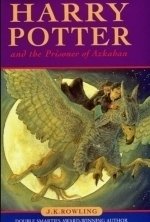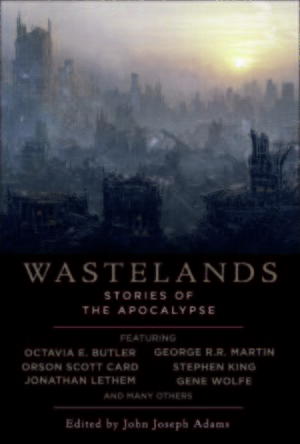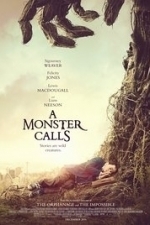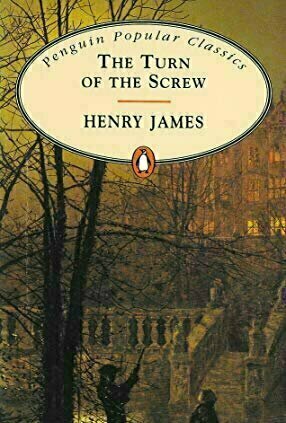Saffy Alexandra (89 KP) rated Harry Potter and the Prisoner of Azkaban in Books
May 26, 2019
The way Rowling manages to make us all panic and worry for Harry the entire way through the book to end up actually rooting for the 'bad guy' is probably one of her many talents (no spoilers but read the last book people).
The introduction of the Dementors who are supposed to 'protect' the school and pupils was chilling - no pun intended - and the actual meaning of them for Rowling's own depression was a real interesting twist to these 'childrens' books. Just adding more and more layers to these fabulous books. Introducing a concept such as 'depression' to young readers is a very difficult thing to do and Rowling achieves this with grace and tact. Introducing something as big as depression to young readers, she has managed to crack through the metaphorical glass roof in the way of mental health. Showing children that any person (Wizard or Muggle) can be effected by depression but there are ways to help combat it is something that is done beautifully in this book.
One of the main things I loved about this book was that she made a werewolf, in which horror has made us fear and distrust, into a character we all root for and adore. His backstory of how he has been mistreated by society and basically pushed to one side is respondent to what has happened to certain people in our society. Again, these are meant to be children's books - Rowling manages to put these points across in such a informative but almost gentle way for children to understand without directly shoving it down their throats. I believe in this way Rowling has managed to help the readers who grew up with these books understand the issues in our society and has helped people grow up to want to help end the stigma attached to certain groups and help make equality in our society.
Not bad for children's book.
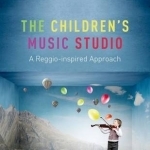
The Childrens Music Studio: A Reggio-Inspired Approach
Book
The Children's Music Studio is the first book that provides music teachers, parents and early...
Nicole Hadley (380 KP) rated The Exact Location of Home in Books
Jun 18, 2018
Messner has given us a compassionate and necessary middle grade story about the reality of homelessness for many children today. This story has a unique premise with the geocaching theme and I love that while the main character is in 8th grade he will be relatable for students both much younger and much older than he is. I would love to get this book into the hands of all teachers and administrators who struggle to understand how difficult school can be for children without a stable home life, and who make well-intended but thoughtless comments about the homeless population.
I received this ARC from Bloomsbury USA Children's Books and Bloomsbury USA Childrens via NetGalley in exchange for an honest review.

Skoobe - Die eBook Flatrate
Book and Entertainment
App
For Booklovers: More than 175.000 eBooks & unlimited reading on phones & tablets Find new books...
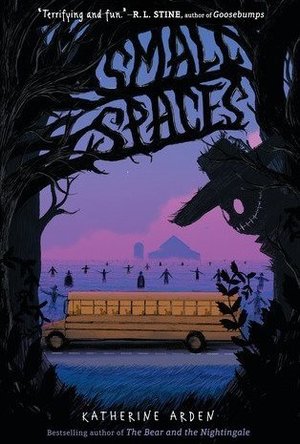
Small Spaces (Small Spaces #1)
Book
Bestselling adult author of The Bear and the Nightingale makes her middle grade debut with a creepy,...
Childrens Middle School Middle Grades Horror Fantasy Fantasy Horror
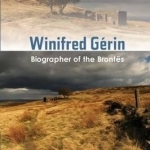
Winifred Gerin: Biographer of the Brontes
Book
The biographer Winifred Gerin (1901-81), who wrote the lives of all four Bronte siblings, stumbled...
Hadley (567 KP) rated Wastelands: Stories of the Apocalypse in Books
Aug 19, 2020
Overall, there were a few good stories inside this book, but some of them seemed out of place, and there were ones that were just boring or not written well (like ending the story just to make it a short story). I only recommend this book to people who absolutely love dystopian stories, but for those who are just light readers of it, I don't think you'd enjoy it.
Being that this is a review for a handful of short stories, I am only going to mention the ones I really liked.
"Salvage" by Orson Scott Card
A long time after atom bombs have destroyed most of the Earth, a young man named Deaver finds out that there may be gold hidden within a Mormon temple, and he's willing to risk everything to get it.
I loved the story, the characters, and the playful banter between them.
"Bread and Bombs" by M. Rickert
During war time, children become curious about an odd neighbor who moves in. Parents demand that their children stay away from them because the neighbor's people are the reason so many people have died.
I liked that the story is through the childrens' eyes, not the adults.
"Dark, Dark Were the Tunnels" by George R. R. Martin
In the story that follows, you'll meet Greel. He is a scout of the People. He's penetrated the Oldest Tunnels, where the taletellers said the People had come from a million years ago. He is no coward, but he is afraid, and with good reason. You see, he's very used to being in the dark, but some visitors have come to the tunnels, and they've brought light with them...
I really liked the whole idea of people tunneling underground when nuclear war happens; there are not enough stories written about this!
"Never Despair" by Jack McDevitt
'Never Despair' tells the story of Chaka Milana, a woman who leaves her hometown in search of a storied place that holds the secrets of the Roadmakers, the almost-mythical builders of the concrete strips that cover the land, and the ruined cities with towers so high that a person could not ascend one in a day.
The story was so good that I wish it were a novel.
"Artie's Angels" by Catherine Wells
A post-apocalyptic society involving bicycles and young men.
This was probably my most favorite story out of the entire book!
"Inertia" by Nancy Kress
A story about the victims of a disfiguring epidemic who are interned in the modern equivalent of leper colonies.
Kress was able to make such a big picture out of very few characters, and in just a few pages. Really well-written.
"The End of the World As We Know It" by Dale Bailey
A lone survivor of an apocalypse attempts to grapple with the emotional dimension of his loss.
Just a really good story.
Lee (2222 KP) rated A Monster Calls (2016) in Movies
Jul 26, 2017
The story is set in a very dreary looking England and features a boy called Conor struggling to cope with his mother’s terminal cancer. His father is divorced from his mother and is living in the States with his new family. He’s bullied at school and he’s troubled by nightmares. And then he starts being visited at night by a monster who tells him 3 stories. It’s a bleak tale about the harshness of life, and I was kind of worried about how my 11 year old daughter might take to it when she said she wanted to see it with me.
J.A.Bayona, director of The Orphanage, handles the subject matter well, showing us how a child’s fantasy can make sense of the world and their feelings. The stories told by the monster occur over a number of days and are beautifully depicted in watercolour animation. Each one providing its own lesson to be learned in life. Liam Neeson is the monster, the large yew tree that Conor can see from his bedroom window, giving his best Aslan voice. Felicity Jones is the mother, gradually dying as each cancer drug fails. Sigourney Weaver is the grandmother who Conor reluctantly goes to stay with while his mother is receiving treatment.
The monster itself, the great yew tree, is a real triumph. Beautifully rendered and realistically interacting with its surroundings. When you consider the films meagre budget of 43 million dollars, it’s breathtaking what they’ve managed to achieve.
As expected, the movie really packs a punch with barely any humour or lightheartedness. There are times it’s a little too slow and gloomy, but it’s hard hitting thought provoking and intense. I don’t mind admitting that both me and my daughter found ourselves in tears towards the end too. Along with most of the cinema!
Hadley (567 KP) rated The Turn of the Screw in Books
Mar 24, 2020 (Updated Mar 24, 2020)
With only 93 pages and the viewpoint of a governess, the story is one that has been up for debate as to its meaning for over a century, a story that blends child abuse and ghostly possession way ahead of its time. But even with its great plot, the story falls short and becomes bland throughout most of its short pages.
So why is the meaning of the Turn of the Screw still being debated? There's only one thing that has caused that --- it's in the way that James wrote the story, nothing is explained and everything is vague, these being very important parts that can keep this book from being enjoyable to many readers. Here's a summary of the story: a woman becomes governess of two children, one of which is sent home from school (technically expelled, in today's terms), the entire book has this woman trying to figure out why the child was sent home, but with ghosts thrown into the mix.
The story starts off with a man telling this ghost story from letters he received from a woman (the governess). But, even at the end of the book, the story never turns back to the man finishing the letters, yet this was done so masterfully that when you are done with the book, you completely forget about the man at the beginning, something that isn't easily done today in most writing. The man is reading these letters to a small audience that is also never revealed why, something that will seem completely irrelevant for the reader.
Readers finally get their paranormal fix when our main character, the governess, sees her first ghost in the Turn of the Screw. Our governess goes on an isolated walk when she spots an older man staring at her from a tower on the estate. But not until after a second encounter with this man, she decides to tell a housemaid about it, who quickly knows whom she speaks of. The maid is very certain that the man the governess has spotted twice is a deceased man that used to work for the family, but the maid is terrified by this because this man seems to have been abusive towards the son of the family and now seems to be continuing to torment him even after death.
Our governess seems to go down a path of paranoia as she seems to believe that the children are seeing the ghosts, too, but refusing to tell her so, and she becomes convinced that the key to getting them to confess is to finding out why the boy was sent home from school in the first place. She tries many times to get him to tell her why, but lets him take control of the conversations where he is able to divert the attention to something else. When things seem to be too much for the governess and housemaid to handle, they decide to try to write the childrens' uncle, and ask him to visit - - - this being the uncle that hired the governess and asked to never be bothered by her again, and that he wants nothing to do with his niece and nephew ever again, and especially don't write to him about any problems.
James is considered one of the greatest authors of the English language, but although this novella did very well, he wasn't known for ghost stories. His most popular book is 'the Portrait of a Lady,' which is about a young woman who comes into a large amount of money only to have it stolen by two con-men. Being that he is a Victorian-era writer, you can expect the overly long paragraphs and descriptions that the time was known for in 'the Turn of the Screw.' I personally felt the story had too many interludes of the governess' thoughts and ideas, which border on rambling. There seemed no point in the governess obsessing over why the boy was sent home from school when there are ghosts tormenting them at home- - - how this mode was suppose to work has left me clueless.
It's a usual horror trope to have children being possessed as the core of a book because it's something that can shake adults to their core at the thought that their own children could be that vulnerable. But James was way ahead of his time in the Turn of the Screw. He was able to put together psychological standpoints that weren't even discussed in his time, bouncing between child abuse with those children acting out to the power that abusers can still hold over their victims, even after death.
I'm giving the story a high rating, although I really didn't enjoy it. Why? Because it was a great idea and it was well written. If James hadn't been so vague on key parts, and hadn't left readers with a shocking unexplained ending, then maybe I would have liked it more. I can only recommend this book to people who like Victorian ghost stories, but for paranormal lovers, I think it falls short.
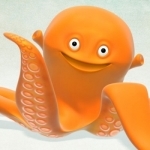
Timmy Tickle!
Book and Education
App
Timmy Tickle is an interactive story app for children that introduces a beautifully animated octopus...
